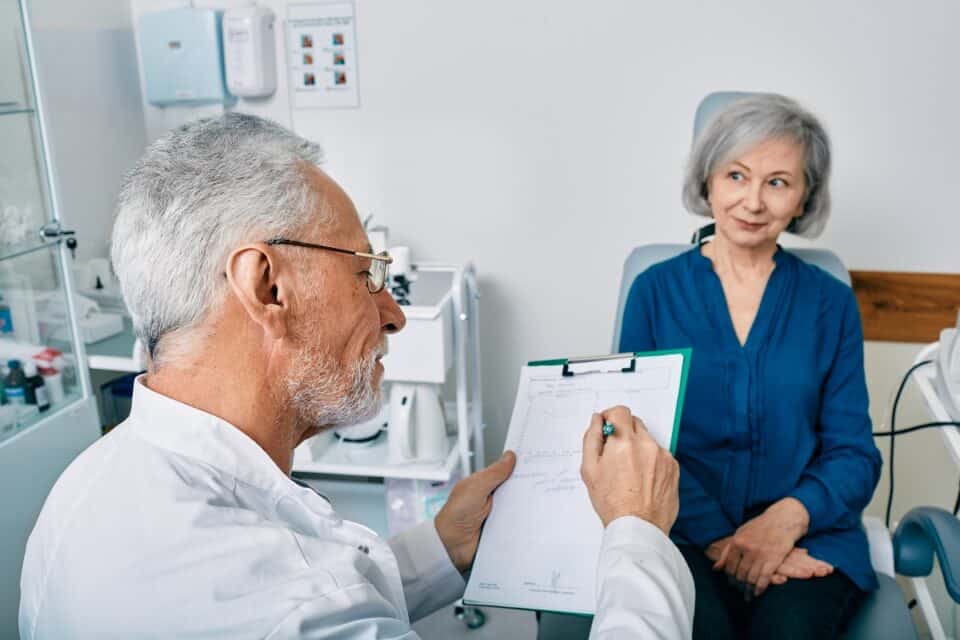- The Emotional Journey of Accepting Hearing Loss - October 25, 2024
- Making a Style Statement with Hearing Aids This Fall - October 15, 2024
- Fireplace Safety and Hearing aids - October 4, 2024
Diabetes is a serious condition affecting an estimated 37 million people in the US. Even more alarming are the 88 million United States citizens who have elevated blood glucose levels to be considered to have pre-diabetes. One in five with diabetes don’t even know they have it, while 80 percent of those considered prediabetic are equally unaware. This and every November, we celebrate American Diabetes Month, an annual campaign to raise awareness, promote screening and treatment of this very serious condition. As hearing healthcare specialists, this month is a great time to highlight the connection between hearing loss and diabetes. Those with diabetes are twice as likely to suffer hearing loss. However, screening for hearing loss is rarely a priority for those diagnosed with diabetes. Let’s explore the connection between conditions and find out what you can do this November.
Understanding the Gravity of Diabetes
Diabetes is an often progressive condition which effects how the cells throughout your body collect energy and sustenance via glucose, also known as blood sugar. The absorption of blood sugar is regulated by a hormone called insulin, which is created in the pancreas. Diabetes occurs when your body either lacks the ability to absorb insulin at all, as is the case with type one diabetes, or absorbs insulin insufficiently, as is the case of type 2. Type one is considered an auto immune disease, primarily affecting people in adolescence. Approximately 90-95% of those with diabetes in the US have type 2 diabetes, often developing in people over age 45. However, we are witnessing more and more children, teens, and young adults with type 2, due primarily to poor dietary and nutritional choices.
The Importance of Monitoring Blood Sugar
If you’ve been diagnosed with diabetes there are a lot of things to consider. Your doctor will most likely recommend a diet rich in vegetables, fruits, whole grains, and lean proteins, while limiting processed sugars and foods. In addition, regular exercise for 25 minuets or more, at least three times a week can get your blood sugar at a safe level. However, in many instances this is not enough and regular daily testing for glucose levels in conjunction with diabetic prescriptions will help monitor levels. This is important for a wide range of reasons, ranging from heart health, regulating blood pressure, protecting nerve health, and vision. It can also protect your hearing. A person who has diabetes is twice as likely to have hearing loss than a person who does not have diabetes. Those who have pre-diabetes are at higher risk, by 30 percent.
The Potential for New Research
What may cause this significant increase of hearing loss in diabetics and prediabetics? One theory revolves around the tiny blood vessels of the inner ear. While sound is collected by the ear, it must travel down the ear canal to the cochlea before it reaches the brain, where speech is deciphered, and sounds are identified. Tiny hair-like cells called stereocilia are the sole delivery system of audio information to the brain. When high glucose levels are present in the blood of people with diabetes or pre-diabetes it can constrict blood cells and blood delivery to the inner ear- often causing irreversible hearing damage.
Testing and Treatment
Regular testing of hearing is key to catching a hearing loss before it starts to affect the quality of your life. Commonly underestimated in its severity, an undiagnosed and untreated hearing loss can cause rifts in your relationships, affect your performance at work, cause chronic depression, effect cognitive health, increase the risk of dementia, increase the risk of falls leading to hospitalization and deplete the general quality of life.
If you have a family history of diabetes, or are over the age of 45, it can’t hurt to screen yourself for diabetes. Take the opportunity of this year’s American Diabetes Month to not only schedule a screening for diabetes, but to also test your hearing. We hope that with every year, an increasing cultural understanding that hearing health care is part of diabetes care, will become the standard. Join us on our campaign by scheduling a hearing exam with us today.

